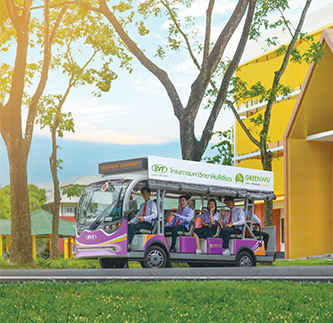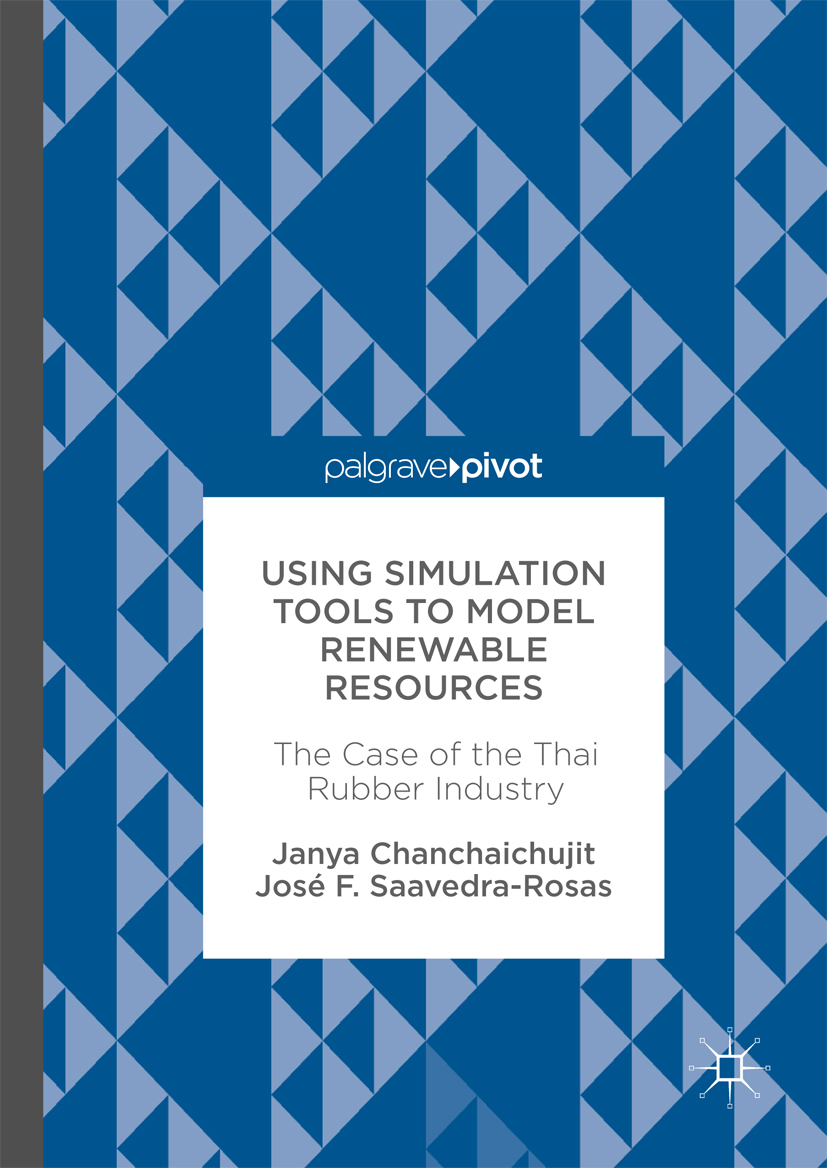Congratulations Dr. Janya Chanchaichujit, School of Management at Walailak University on the publication of her new book “Using Simulation tools to model renewable resources: The case of the Thai Rubber industry” which is co-author with Dr. Jose Saavedra-Rosas from University of Chile. This book has published by Palgrave Macmillan and Springer International for e-book. The book is available to purchase in hardcover and e-book. It can be found online at Springer, Palgrave and various third-party vendors such as Amazon.com.
About the book:
This book is about the application of Simulation Tools in the Modelling of Renewable Resources in the Thai Rubber industry. It aims to provide a hands-on approach to Supply Chain modelling by exploring the process and decisions in building a model. The emphasis is on the Thai Rubber industry, modelled with the use of an open source software tool named Ptolemy II.
The contributions in this book are twofold with regard to modelling levels: how to model Discrete Event Simulation (DES) using Ptolemy II, and how the Thai Rubber industry, at an industrial level, may benefit from using this model for decision support systems. In addition, the simulation model developed in this book is made accessible to the nontechnical reader such as a manager, entrepreneur or policy maker in the Thai Rubber industry who can replicate it by following the instructions provided and by making use of open source software tools. The benefit of using open source tools is that the reader is not required to make a large investment in order to implement and use the models developed in the book. Similar techniques to the ones described in the text may be used for not only rubber-related problems but also for any general application in renewable resources management such as the palm oil industry, forestry, farming, livestock management, etc.
This book consists of six chapters. Chapter 1 presents the background related to the book: the natural rubber industry, decision support systems for the rubber industry and a simulation model. In chapter 2, the elements of the natural rubber industry supply chain are presented. This chapter aims to introduce the reader to the physical transformation of rubber and categories of natural rubber products. The common definitions for each rubber supply chain entity and their relevant process are presented along with logistics and marketing activities and decision making. Moreover, supply and demand mechanisms are discussed in order to understand how price is formulated in the natural rubber industry. Chapter 3 is concerned with the Discrete Event Simulation (DES) paradigm. The main objective of this chapter is to provide the reader some basic philosophical foundations of the technique and it also serves as a brief introduction to Ptolemy II as it illustrates some of the concepts presented by using the software in the context of a simple example. Chapter 4 presents a Discrete Event Simulation Model (DES) which is built step by step, using Ptolemy II. The elements of the model are explained. After the design decisions have been made, the elements are implemented and integrated into the model being built. In each step of the process, checks and control measures are put in place in order to guarantee the validity of the model in a way that resembles unit testing in programming. In chapter 5, the building blocks developed in chapter 4 are used to model the Southern Thailand Rubber supply chain. After the model is built, it is validated to check the consistency of the observed movement and the material movement at the regional level. The chapter concludes by analysing the capability of the model by using a couple of case studies. Chapter 6 concludes with summaries and recommendations for future research.
About the authors:
Dr. Janya Chanchaichujit is a lecturer in Logistics and Supply chain management in the School of Management at Walailak University in Thailand. She teaches on a variety of topics in the logistics management field. Prior to that, she was a lecturer at Curtin University in Australia to postgraduate students in Supply chain management. Dr. Chanchaichujit holds a PhD in Logistics and Supply chain management from Curtin University in Australia, a MSc in Operational Research from the University of Hertfordshire in the UK, and a BSc in Mathematics from Mahidol University in Thailand. She also holds a Graduate Diploma in Management from the Japan-American Institution of Management Science in the USA, and a Certificate in Logistics management from the Association for Overseas Technical in Japan. Dr. Chanchaichujit has more than ten years industrial work experience in manufacturing operations, production planning, distribution, transportation and logistics program design, including MRP and ERP systems. Her work spans multinational companies in Thailand and affiliated companies in Austria, the USA, Brazil, China, and Japan. Dr. Chanchaichujit’s research interest is in Supply Chain Management Model Design. Her research focuses on incorporating various aspects of operational research applications, mathematical modelling techniques, simulation and data analytics into the design and operation of the Supply Chain. Her aim is to develop a model of real-world problems that exist in the industry. The eventual aim is for the model to assist with decision analysis and problem solving in dealing with economic, environmental and social issues in the supply chain.
Dr. Jose Saavedra-Rosas is an Adjunct Professor of the Mining Department, Faculty of Physical and Mathematical Sciences, University of Chile. He is also Principal Consultant and Solutions Manager at Optika Solutions, an innovative firm based in Perth, Western Australia. Dr. Saavedra-Rosas holds a PhD in Natural Resources Engineering from Laurentian, University, Sudbury, Ontario, Canada, a MSc in Operations Management from University of Chile and a Mathematical Engineering degree from the University of Chile. Dr. Saavedra-Rosas is the current Academic Director of the Mineral Economics Postgraduate program in the Mining Department at the University of Chile. Previously, Dr. Saavedra-Rosas was a Senior Lecturer at the Department of Mineral and Energy Economics at Curtin University where he still holds an adjunct position and actively collaborates with the Mineral Economics program. His recent teaching responsibilities have included units as diverse as Econometrics and Forecasting, Resource Cost and Capital, Risk and Decisions in Mining, Resource Estimation, Mine Planning and Operations Research. His research interests are centred around the application of Operations Research methods and techniques in natural resource problems.
Here are the link to purchase the book:
Springer website: http://www.springer.com/gp/book/9783319558158
Palgrave website: http://www.palgrave.com/gp/book/9783319558158
Amazon website: https://www.amazon.com/Using-Simulation-Tools-Renewable-Resources/dp/3319558153












